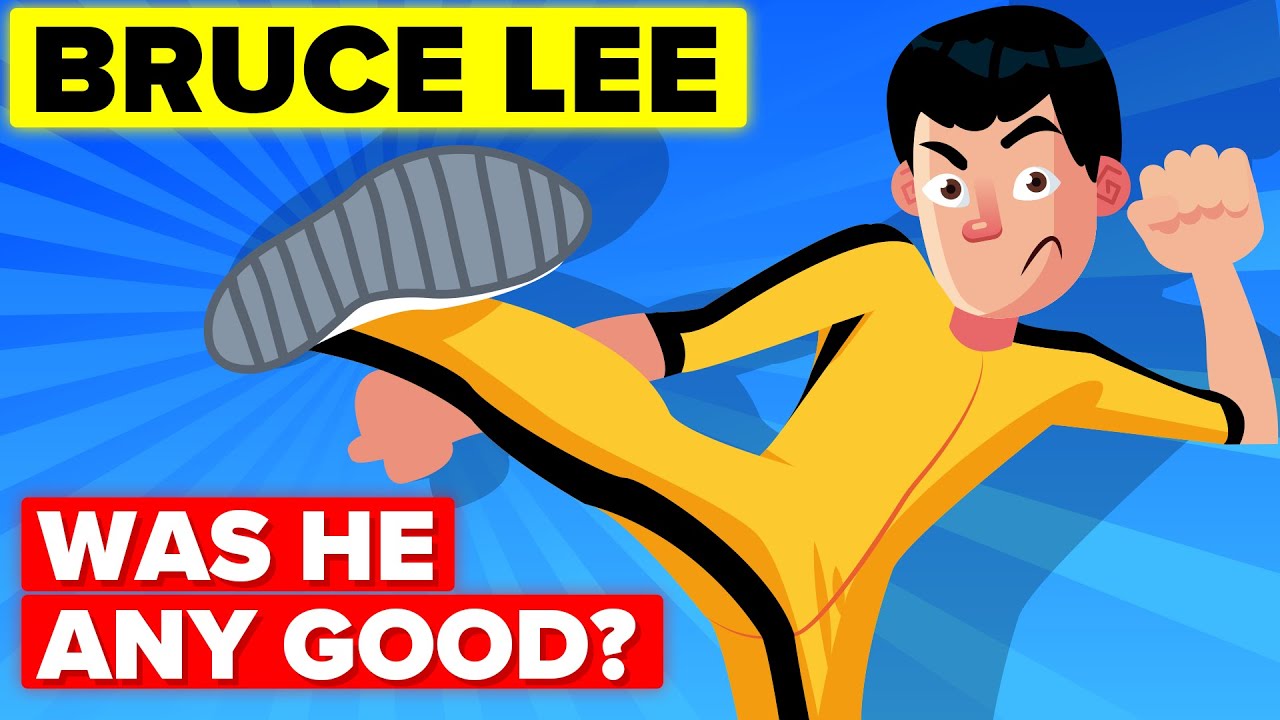Was Bruce Lee Actually A Good Martial Arts Fighter?
Unleash Your Creative Genius with MuseMind: Your AI-Powered Content Creation Copilot. Try now! 🚀
In the vibrant world of early 1960s San Francisco's Chinatown, young martial artists gathered to prove their mettle. Most masters hesitated to teach their ancient Asian art to Westerners, but not Bruce Lee. He welcomed any apprentice willing to prove their dedication. This decision led to a showdown that would become legendary in the world of martial arts. Enter Wong Jack Man, one of the greatest martial arts masters of his time, and a man who took offense at Lee's open-mindedness. The challenge was set, and the fight was on.
In the secretive confines of Lee's studio, a select few gathered to witness a battle of epic proportions. The doors were barred to the public, as this was a personal grudge match with only one possible victor. What unfolded that day left fans of martial arts pondering a singular question: Was Bruce Lee as exceptional a fighter as he was a teacher?
The Fight That Became Legend
Several accounts of the fight between Lee and Wong Jack Man have circulated, each with its own perspective on the outcome. In one version, Lee swiftly overpowered Wong, bringing him to the brink of surrender before concluding the fight. In another, Wong, recognizing that Lee's pride wouldn't allow him to accept defeat, fought defensively to avoid a fatality, leading to a draw. Yet another account suggests that the two were evenly matched, and the battle turned into a prolonged exchange of blows before they called a truce.
This legendary encounter, combined with Bruce Lee's iconic performances on the silver screen, has cast a shadow of uncertainty over his prowess as a martial artist. Was he truly as formidable in combat as he was in training?
The answer to this question is not easily discerned, as Bruce Lee's recorded fights are scarce. In those times, mixed martial arts had not yet been established as a sport, and the existing martial arts tournaments did not align with Lee's style or goals.
The Limitations of 'Point' Tournaments
The tournaments available at the time, such as the 'point' tournaments that Chuck Norris participated in, awarded points for hits on specific, often non-lethal areas. These tournaments often featured light contact and focused on scoring rather than delivering devastating blows. These contests were far from what Bruce Lee's martial arts philosophy entailed.
Critics of Lee often highlight his lack of documented fights as evidence of his inadequacy as a fighter. However, this argument falls flat when examined logically. Lee's physical feats, like sending a much larger man flying with a six-inch punch, attest to his immense power. Lee's martial arts training centered on delivering devastating blows rather than competing in matches.
Lee's Focus on Real Combat
Bruce Lee's training was not geared towards winning martial arts tournaments but rather for real-life combat. He delved into the study of human anatomy to discover how to inflict maximum damage on an opponent. His martial arts were tools for self-defense, honed for swift and devastating victory.
Modern MMA vs. Bruce Lee's Style
Some detractors claim that Lee lacked the ability to endure extended punishment, a skill that modern MMA fighters excel in. However, modern MMA fighters adhere to specific rules that prohibit techniques, such as those Lee mastered, that could incapacitate or kill an opponent. If the same lethal style were allowed in modern MMA, matches would be considerably shorter and more fatal.
Lee's Adaptability and Skills
Bruce Lee's ability to adapt and innovate was evident throughout his life. He quickly developed an even deadlier form of Jeet Kune Do and incorporated grappling techniques into his repertoire after witnessing their effectiveness. Given his adaptability and willingness to learn, it's plausible that he could have excelled in modern MMA if he had trained for it.
Beyond the Silver Screen
Despite his fame as an actor, Bruce Lee's physical prowess was well-documented and verified. On film sets, he had to slow down his movements to be captured on camera, and even then, the camera used a higher frame rate to capture his incredible speed. Lee's one-inch punch and ability to shatter boards and knock down larger opponents confirmed his extraordinary skills.
Technique and Sparring
While there's limited documentation of Lee's actual fights, there are clips of him sparring with advanced students. Even in these controlled sparring matches, Lee's adaptability, speed, intelligence, and power shone through. He understood the reality of a fight—sometimes, you have to endure blows to deliver a winning counter-attack.
The Test of Time
Several renowned martial artists and professional boxers, including Mike Tyson, Mike Stone, and Joe Lewis, attested to Bruce Lee's exceptional abilities. His daily training regimen, which included punishing exercises like striking a metal dummy, demonstrated his unwavering commitment.
In the end, the world may never definitively know if Bruce Lee was as remarkable a fighter as he was a martial arts teacher. Nevertheless, the evidence points to a man whose skills were finely honed, his knowledge of human anatomy extensive, and his training techniques brutal. Bruce Lee's legacy extends far beyond the silver screen; he was a true martial artist, a visionary, and a pioneer in the world of combat. His extraordinary abilities and unrelenting dedication are a testament to his greatness.
